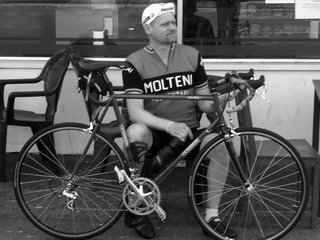I was just this past week at a retreat with other community college faculty and administrators. We were talking about “assessment,” that is about how we might discover what is going on in our classrooms and how we might use what we discover to achieve more perfectly our goals for those classrooms (whatever those goals are). The day or so of conversation was useful for me. My participation in these conversations focused the new term, at least in part, on learning rather than on classes and reports about teaching. It’s interesting to me that this focus on learning came from talking with a bunch of teachers and researchers rather than from learners more traditionally defined. What refreshed me, perhaps, was our unabashed interest in sustaining institutions that see learning as their focus. We want to create and maintain spaces where in learners add value to their lives and we, in collaboration with these learners, add value to communities, local and global.
At several points we realized what a strikingly counter-cultural urge this one we have is. We did not, I think, name why this is so, and I want to try to do this here. Education involves a simultaneous release and pursuit of a learner’s interest. To lead oneself (or to be lead) out from one state to another entails desiring a new state but also relinquishing control over the state one is in and the state one is moving toward and both to desire and to relinquish in a serious way. To learn, one has to allow new networks and connections and relations to form; one must meet the other and become other than one was.
This is inherently dangerous, education. We can’t control where we will end up even though we must try to shape a path, to take responsibility for steering our own development. If we are unable simultaneously to aspire and relinquish, we may more completely inhabit our entitlements, but we will not add value beyond protecting the capital we already hold. A learner who refuses to aspire or to relinquish may even gain value by interest. As a child of educated small business people, I could have gotten an education by simply attending classes, but that education would largely have been an extension of my parents labor. They had put me in a position to acknowledge authority and carry out tasks on time (that is at least part of my entitlement). But had I not myself desired a new affect and awareness and skill set, I would have finished college as the child of small business people ready to replicate and add to that existence but unable to wonder much about it. And had I been unwilling to plug into a new network of people and ideas, new ecosystems, little that I learned, even had I desired new knowledge and perspective, would have been integrated into who I became. No one in Eau Claire, Wisconsin in 1981 would have predicted that I would be blogging from the Pacific Northwest or that I would have studied English literature and then rhetoric. Such is, I think, the outcome of education.
Is this sort of open-ended journey desirable? That is an open question. I suspect that without such an avenue, societies become reactionary arrangements that protect this or that array of resources. Jefferson and Dewey have argued that this sort of education is essential to meaningful democracy; Putnam (Bowling Alone) and others suggest that the U.S. democracy has largely lost track of this sense of education. I wonder where my students are at, whether they are willing to aspire but also to relinquish. This act seems to involves much more than paying tuition and getting credentials. Is it too much to ask? Can only some students afford this sort of venture?
Here's an alternate question: Can anyone afford not to pursue this sort of education, whether they have access to educational institutions or not? I am deeply aware that I write this question from a very privileged position. I have had access to institutions and am that sort of learner that my culture expects to be able to learn. Still I ask this question in a general way. Can humans afford not to aspire to grow and to be willing to forge new relationships in ways that do not reduce the other to property of some sort?
Sunday, October 01, 2006
Subscribe to:
Posts (Atom)
